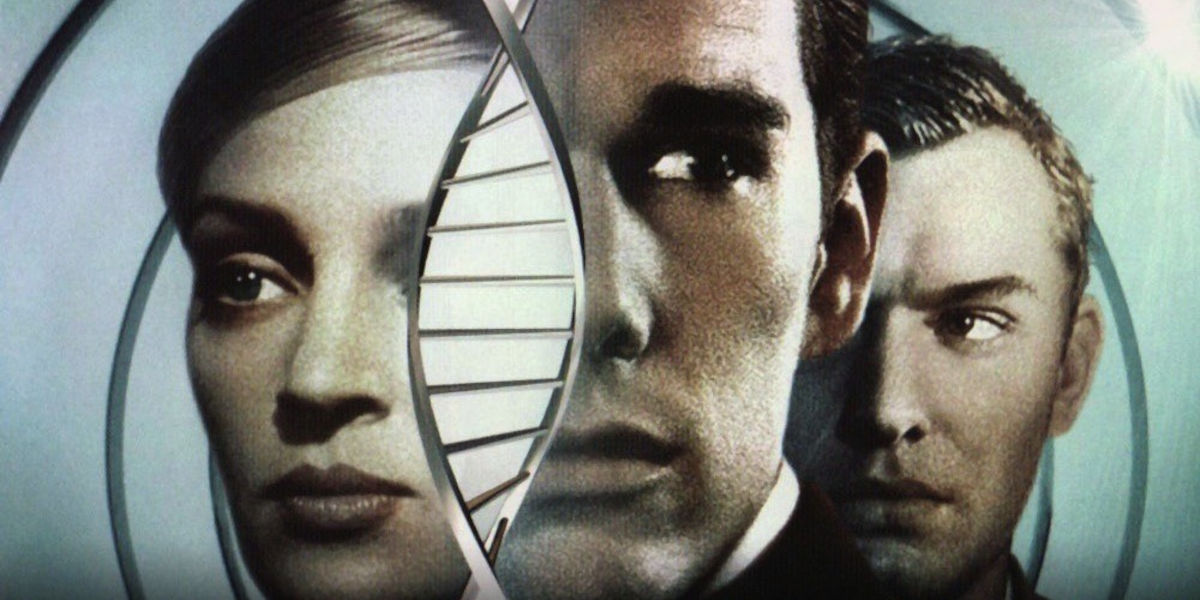Ever since its 1997 release, the sci-fi film Gattaca has continued to spark debates on the complex interplay between science, ethics, and society. With biotechnology continuing to advance at an exponential rate, the Gattaca Genetic Engineering themes presented in Gattaca seem more pertinent than ever before. In this comprehensively articulated Gattaca movie review, we dive deep into the exploration of near-future scientific advancements and ethical implications featured in the film.
The Narrative Ambition of Gattaca
Gattaca unravels in a futuristic society where genetic manipulation is the norm, shaping up a "perfect" race devoid of diseases and disabilities. In Andrew Niccol's perfect-looking yet morally flawed society, even love, partnerships, and offspring are dictated by one's genetic make-up.
In the story, those conceived naturally or "in-valids", like the protagonist Vincent (Ethan Hawke), struggle in a society obsessed with genetic perfection. His ambition to overcome discrimination and realize his dreams serves as the crux of the narrative, making Gattaca a fierce satire of a genetically engineered future.
Examining Gattaca’s Genetic Engineering Themes
An in-depth Gattaca movie review reveals how the film presents a stark division of society based on genetically manipulated perfection versus natural imperfections, thereby highlighting several critical ethical dilemmas and socio-political implications of genetic engineering.
For instance, the storyline's emphasis on genetic superiority and discrimination bears striking resemblance to numerous historical precedents of eugenics and can echo contemporary debates about genetic modification and 'designer babies' – where wealthier sections of society who can afford the advanced biotechnology maintain a class monopoly, leaving the lesser privileged to grapple with their genetic 'imperfections'.
How Realistic is the Science in Gattaca?
Gattaca's portrayal of genetic engineering may seem hyperbolic at first glance, but the truth is, we already live in a world where the science of genetics has made leaps and bounds. The idea of genetic editing, once in the realm of science fiction, is now achievable thanks to technologies like CRISPR-Cas9, that have made it possible to precisely tweak the DNA in humans. While we are far from realizing a society as dramatically segregated on genetic lines as depicted in Gattaca, it's worth taking the scientific advances presented in the movie with the seriousness they deserve.
The film brilliantly portrays the potential for genetic discrimination, a concerning thought as we tread the path towards advanced genetic intervention practices. While we are yet to fully understand the long-term effects of genetic modification practices on humans, the narrative cautioned by Gattaca forces us to pause and ponder the ethical implications and societal consequences of these advancements.
As Gattaca rightly indicates, the cornerstone of this debate is not the impossibility, but rather the responsibility with which we handle these scientific powers. Genetic engineering, despite its potential for tremendous good, is a double-edged sword that calls for responsible, ethical, and inclusive dialogue and engagement from all stakeholders.
As we delve deeper into Gattaca's premise, we begin to see the intricate interplay of science and ethics. One of our introductions to Gattaca’s world is protagonist Vincent Freeman, a genetically inferior individual, or "In-Valid," who dreams of aeronautical stardom - a vocation solely for the genetically enhanced. His determination lies in resisting the genetic caste system that suppresses him. Consequently, Vincent resorts to what we would today call identity theft - buying the genetic identity of a genetically superior person who has had an accident and has become paraplegic.
His quest to usurp his genetic destiny sheds light on the perils of a society reliant solely on genetic determinism. It demonstrates that in a world where technological advancements outpace our moral capabilities to cope with them, our humanity is the first thing we stand to lose.
Science Behind the Fiction
The science underpinning Gattaca's storyline emerges from a basic understanding of genetic engineering. The marriage of science and technology promises the eradication of genetic diseases, enhancement of physical abilities, and even accentuation of desirable traits. Although laudable in theory, this premise teeters on a lot of ethical fault-lines as portrayed in the movie.
The movie peeks into the near future, revealing how scientific exploration might bring us face-to-face with our genetic vulnerabilities. Despite this, it bravely posits the question – does a superior genotype guarantee superiority in real life scenarios? Vincent's triumph against his genetically superior counterparts answers this with a resounding "No."
Ethical Implications & The Question of Identity
By spanning the entire range of possibilities genetic engineering might offer, the movie explores the potential ethical dilemmas such advancements might trigger. It explores questions around informed consent, autonomy and most importantly, the philosophical conundrum of identity — would we still remain who we are once our genes are altered or chosen? In Gattaca, the conception of a genetically engineered future is undeniably dystopian, vehemently rejecting the belief that the manipulation of genes leads to a perfect society.
One of the main ethical concerns presented by the movie is the threat it poses to the aspect of our humanity, expressible only as individuality. The prospect of designer babies questions the morality of creating perfect humans and underlines the potential chaos in stripping away human individuality. It illuminates the human spirit, which cannot be quantified or manipulated, genetically or otherwise.
Concluding Thoughts
The beauty of Gattaca's storyline lies in its portrayal of human spirit triumphing over genetically encoded destiny. The movie artfully uses a scientifically plausible future to confront audiences with ethically disturbing scenarios. Its eerie resemblance to our reality serves as a cautionary tale, underlining the necessity of tempering technological advancements with a sound ethical compass.
All set aside, the paramount message of Gattaca is that 'there is no gene for the human spirit.' Therein lies its true power - in its affirmation of human spirit, human will, and the indomitable human strength to choose and forge our own destiny, regardless of the genetic hand we're dealt.




